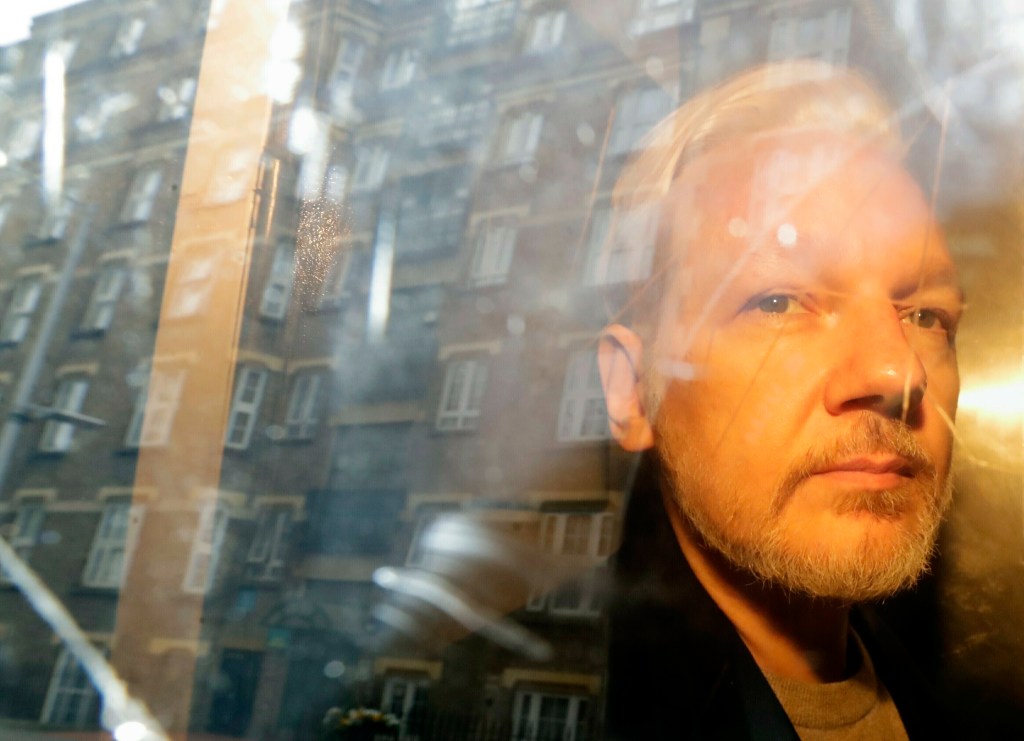For those of us who work in traditional media and line up firmly on the side of whistleblowers and press freedoms, the Julian Assange business has always been fraught.
First, there is our collective discomfort with how the founder of WikiLeaks chose to publish, creating what felt to us like an anarchic, explicitly activist, minimally curated dumping ground of classified information, as distinct from a responsible and ethical publication with a long history of careful editorial checks and balances.
Second, there is the complicated business of leaking classified material. Most responsible journalists would allow there is a good reason for governments to keep some things secret, especially to protect those in harm’s way, like intelligence sources and military personnel. On the other hand, history teaches us, storied media outlets aren’t above profiting from the printing of classified information they think will attract and interest readers, even as they usually cloak that gain in arguments of public service with themselves as the righteous arbiters. Yet what does, or does not, put someone in harm’s way often is as much a matter of opinion as to what constitutes a legitimate government secret.
But, even beyond that, there has been the matter of the sleaziness of Assange himself.
In his youth he became known as an “ethical hacker,” an oxymoronic term. But his skills were such that he actually gained temporary active control over some business and government systems, making changes for his own benefit and publishing how-to materials that could easily be used by those with nefarious motivations (Assange did not care).
In 2010, Sweden issued an arrest warrant for Assange due to an allegation of sexual assault (he denied it and the charge was dropped nine years later). To avoid extradition from the U.K., Assange decamped to the Ecuadorian embassy in London, where he famously claimed asylum, rarely took showers and holed himself up with his cat.
Lady Gaga and Pamela Anderson came to visit a man who would have risked arrest had he stepped outside.
Eventually he got kicked out, after Ecuador accused him not just of personal hygiene issues but also “discourteous and aggressive behavior,” as well as “repeated violations to international conventions and daily-life protocols,” the BBC reported at the time. So Assange finally had to pay the piper and landed in jail — specifically, London’s high-security Belmarsh prison — for violating bail conditions relating to the Swedish sexual assault charges.
There he stayed for five years until Monday afternoon, when he was released on bail at London Stansted Airport, chartered jet at the ready. A deal involving Australia and the U.K. had been struck with the U.S. Department of Justice whereby Assange would plead guilty to a single criminal count of conspiring to obtain and disclose classified U.S. national defense documents and then be allowed to fly home to Australia after receiving credit for the time already served in the British jail.
He is expected to appear in a U.S. District Court on the island of Saipan in the Northern Mariana Islands, of all places, which is about as Assange-like an ending to the tawdry Assange saga as we can imagine. Screenwriters are already licking their pencils.
We hope not to hear a lot more from Assange, who spent 11 years in some form of incarceration. That’s a decent amount of time for a nonviolent offense.
To some, he will remain a hero to the people even as others always will see him as a menace to the world.
We see him primarily as a worrying product of how the Wiki-fication of society unleashed a new set of moral dilemmas on the honorable practice of media outlets holding governments to account by refusing to keep all their secrets. Was this furtherance of democratization or a harbinger of anarchy? The answer forever will be contested.
But here is what should not be contested: Assange was abhorrent in much of his personal conduct.
We plan for this to be our last word on Assange, and we’re also hoping not to read more pieces about Assange that require editorial boards like this one to twist themselves into pretzels to reconcile what he was doing with what we journalists do ourselves, and then clearly define the difference to the world at large.
Was Assange a journalist? That depends how you define the term, but no, not to us.
Either way, though, he was a lousy vessel for his own agendas.
Submit a letter, of no more than 400 words, to the editor here or email letters@chicagotribune.com.


